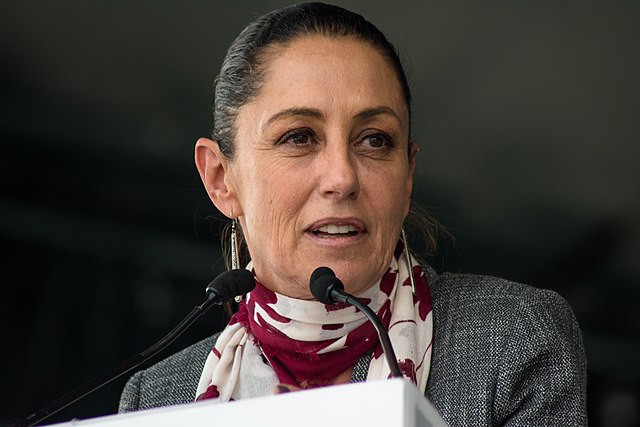President-elect Donald Trump has announced plans to impose sweeping tariffs on goods from Mexico, Canada, and China immediately upon taking office, framing the move as part of his strategy to combat illegal immigration and drug trafficking. Trump revealed his intentions Monday night in a series of posts on his social media platform.
"On January 20th, as one of my many first Executive Orders, I will sign all necessary documents to charge Mexico and Canada a 25% Tariff on ALL products coming into the United States," Trump wrote. He accused both nations of facilitating an influx of crime and drugs, adding, "Until such time as Drugs, in particular Fentanyl, and all Illegal Aliens stop this Invasion of our Country!"
The proposed tariffs would apply to all imports from Mexico and Canada, while goods from China would face an additional 10% tariff on top of existing duties. Trump linked the measures to ongoing concerns about fentanyl trafficking, stating, "Until such time as they stop, we will be charging China an additional 10% Tariff, above any additional Tariffs, on all of their many products coming into the United States of America."
Mexican President Claudia Sheinbaum pushed back Tuesday, vowing to impose retaliatory tariffs if Trump follows through on his threats. In a letter to Trump, she questioned the logic of targeting trade that benefits both nations.
"Among Mexico's main exporters to the United States are General Motors, Stellantis, and Ford Motor Company, which arrived in Mexico 80 years ago," Sheinbaum wrote. "Why impose a tariff that would jeopardize them? Such a measure would be unacceptable and would lead to inflation and job losses in both the United States and Mexico."
Sheinbaum also criticized Trump's broader immigration stance, urging the U.S. to address the root causes of migration rather than imposing punitive measures. "If even a small percentage of what the United States allocates to war were instead dedicated to building peace and fostering development, it would address the underlying causes of human mobility," she said.
The Canadian and Chinese governments also responded to Trump's announcement, emphasizing the mutual benefits of trade cooperation. Liu Pengyu, spokesperson for the Chinese Embassy, warned in a statement, "No one will win in a trade war or a tariff war."
Trump's plan comes at a time when U.S.-Mexico border apprehensions are on track to hit their lowest level under the Biden administration. Customs and Border Protection data shows that unlawful crossings are expected to total fewer than 50,000 in November, marking a significant decline.
Economists have warned that such sweeping tariffs could destabilize trade relationships and hurt consumers in all three countries. A 25% tariff on imports from Mexico and Canada would increase costs on a wide range of goods, including automobiles and household products, potentially driving inflation higher in the United States.
Trump's nominee for Treasury Secretary, Scott Bessent, has defended tariffs as a strategic tool. Writing in a Fox News op-ed last week, he stated, Tariffs are "a useful tool for achieving the president's foreign policy objectives." However, analysts caution that new levies could jeopardize the 2020 United States-Mexico-Canada Agreement (USMCA), a trade deal Trump himself helped broker and which is set for review in 2026.
Sheinbaum's response underscored the deep economic ties between the U.S. and Mexico, particularly in the automotive sector. "Such tariffs would jeopardize long-standing partnerships and create unnecessary economic strain," she wrote.






